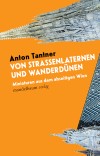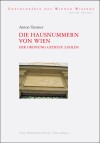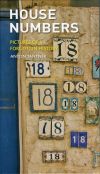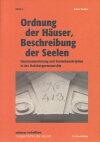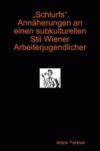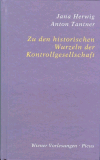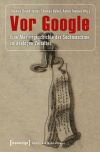Neuerscheinung zu Suchmaschinen
Sehr schön, das in Amsterdam ansässige Institute of Network Cultures veröffentlichte soeben den Open Access zugänglichen Society of the Query Reader: Reflections on Web Search, der auch einen Beitrag von mir enthält:
Tantner, Anton: Before Google: A Pre-History of Search Engines in Analogue Times, in: König, René/Rasch, Miriam: Society of the Query Reader: Reflections on Web Search. Amsterdam: Institute of Network Cultures, 2014, S. 121-138.
https://networkcultures.org/wpmu/portal/publication/society-of-the-query-reader-reflections-on-web-search/
PDF: https://networkcultures.org/wpmu/portal/files/2014/04/SotQreader_def_scribd.pdf
About the book: Looking up something online is one of the most common applications of the web. Whether with a laptop or smartphone, we search the web from wherever we are, at any given moment. ‘Googling’ has become so entwined in our daily routines that we rarely question it. However, search engines such as Google or Bing determine what part of the web we get to see, shaping our knowledge and perceptions of the world. But there is a world beyond Google – geographically, culturally, and technologically.
The Society of the Query network was founded in 2009 to delve into the larger societal and cultural consequences that are triggered by search technology. In this Reader, which is published after two conferences held in Amsterdam in 2009 and 2013, twenty authors – new media scholars, historians, computer scientists, and artists – try to answer a number of pressing questions about online search. What are the foundations of web search? What ideologies and assumptions are inscribed in search engine algorithms? What solution can be formulated to deal with Google’s monopoly in the future? Are alternatives to Google even thinkable? What influence does online search have on education practices? How do artists use the abundance of data that search engines provide in their creative work? By bringing researchers together from a variety of relevant disciplines, we aim at opening up new perspectives on the Society of the Query.
Tantner, Anton: Before Google: A Pre-History of Search Engines in Analogue Times, in: König, René/Rasch, Miriam: Society of the Query Reader: Reflections on Web Search. Amsterdam: Institute of Network Cultures, 2014, S. 121-138.
https://networkcultures.org/wpmu/portal/publication/society-of-the-query-reader-reflections-on-web-search/
PDF: https://networkcultures.org/wpmu/portal/files/2014/04/SotQreader_def_scribd.pdf
About the book: Looking up something online is one of the most common applications of the web. Whether with a laptop or smartphone, we search the web from wherever we are, at any given moment. ‘Googling’ has become so entwined in our daily routines that we rarely question it. However, search engines such as Google or Bing determine what part of the web we get to see, shaping our knowledge and perceptions of the world. But there is a world beyond Google – geographically, culturally, and technologically.
The Society of the Query network was founded in 2009 to delve into the larger societal and cultural consequences that are triggered by search technology. In this Reader, which is published after two conferences held in Amsterdam in 2009 and 2013, twenty authors – new media scholars, historians, computer scientists, and artists – try to answer a number of pressing questions about online search. What are the foundations of web search? What ideologies and assumptions are inscribed in search engine algorithms? What solution can be formulated to deal with Google’s monopoly in the future? Are alternatives to Google even thinkable? What influence does online search have on education practices? How do artists use the abundance of data that search engines provide in their creative work? By bringing researchers together from a variety of relevant disciplines, we aim at opening up new perspectives on the Society of the Query.
adresscomptoir -
Communication - Do, 24. Apr. 2014, 08:37
